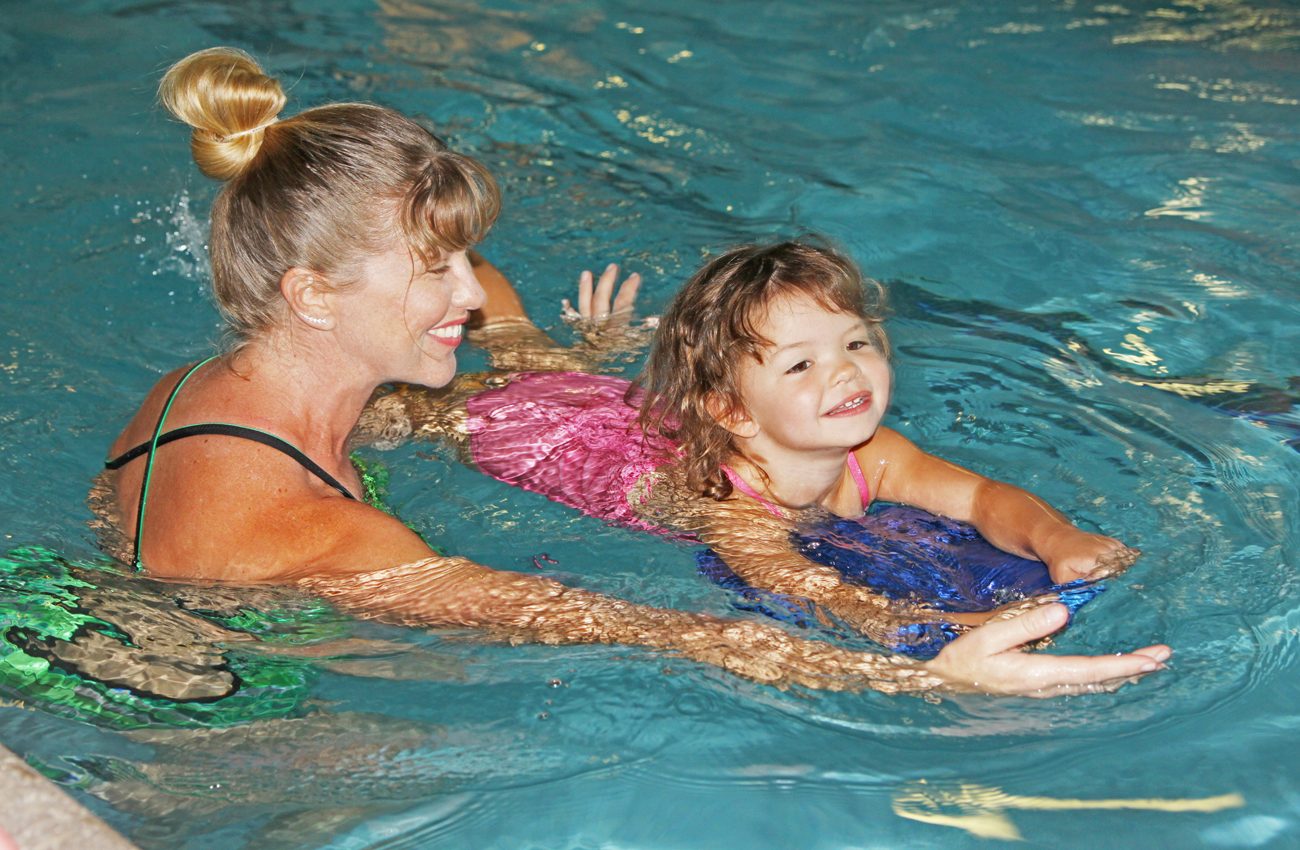4 Things Everyone Needs to Know about Water Safety
Club La Maison talks about the importance of water safety, and offers two free water safety lessons!

Water safety is getting more attention each year, and justifiably so. I’m sure most parents can recall a scary situation they have been in or have witnessed regarding water safety in a pool, ocean, or lake. Most pediatricians have added the topic to their basic health and safety questionnaires, and more and more organizations are popping up to educate parents.
The bottom line is: Will your child (or you) know what to do if you fall in? To help you understand the importance of, and the strategy to create, water safety consider these four things:
Drowning is the second most common cause of death among children in the United States.
According to the Centers for Disease Control, between 800 and 900 children drown every year in the United States. This is unnecessary. According to a July 2018 TIME Health article, only birth defects cause more deaths than unintentional drowning for children between the ages of 1 and 4. Interestingly, most of these deaths from drowning occur in home swimming pools. This is a statistic we can change.
You won’t hear someone drowning.
“Drowning is quick and silent, so you won’t hear cries for help or splashing like you would expect, so it’s really important that parents take extra steps for safety,” stated Emily Samuel, a senior program manager at Safe Kids Worldwide, a nonprofit that aims to keep kids safe from accidental injury and death.
Water safety is a learned behavior.
We need to talk about it and take action. Children can have an inflated view of their abilities regarding swimming. Part of the Red Cross water safety curriculum is to:
- Let kids know they are never to get in a pool, ocean, river, or even bathtub without grown-up or lifeguard supervision.
- How to recognize an emergency and call for help without trying to assist someone in trouble themselves.
- Remove unsupervised temptations such as kiddie pools and even buckets of water.
- Wear Coast Guard approved life jackets at all times when boating and swimming in open water, or when an adult is not in arm’s reach.
By giving children of any age repetitive positive experiences that teach them to submerge, manage their air without panic (nose bubbles), surface, roll over to float on their backs, kick their head to a wall, and how to effectively climb out, we can arm them with skills to save themselves. Each one of these is a separate skill, together they are a lifesaving skill set.
Water safety is not just for kids.
The skills described above apply to everyone, and adults can learn them at any age, no matter what happened to keep you away from the water as a child. A recent story of a grandmother and her grandchildren drowning in a flooding house is more haunting than most, because it was preventable. Unexpected things happen, but we can be prepared and equipped with the skills to live through them. And that makes all the difference.
La Maison Health & Fitness has a Kids Swim Program, and Director Gloria Sephes has taught hundreds of children and adults the skills needed to be safe around and in water. Creating these skills is progressive, takes time, and trust with an instructor to get you over the vulnerabilities that naturally arise.
Working on these skills with the one-on-one attention of a private instructor make this process safer, faster, and more comfortable. La Maison’s compassionate instructors are certified lifeguards and have experience with patrons from babes to bucket listers!
Photo by La Maison Health & Fitness.



NO COMMENTS